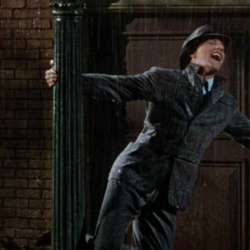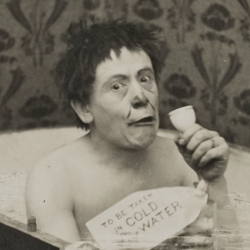In 1963, David Ogilvy said: ‘You should try to charm the consumer into buying your product. This doesn’t mean that your advertisements should be cute or comic. People don’t buy from clowns.‘ Was he right? Data from Kantar would suggest that a growing number of marketers have come to agree with him over the years. According to their analysis of over 200,000 ads from around the world, 53% of ads in 2004 were funny or light-hearted. By 2020 this proportion had dropped to just 34%.
Why such earnestness? One could speculate that an increasing emphasis on purpose tends to crowd out the opportunity for comedy or even light-heartedness. But the introduction of a humour category into the Cannes Awards indicates that things might be set to change in the world of advertising. And that’s no bad thing, given the evidence. Because studies suggest that ads that entertain may have the edge.
Funny makes things sticks
What are the stories you remember well enough to tell your mates? Chances are they share certain characteristics — of which humour may be one. We naturally tend to recall things that amuse us. But beyond this, there is evidence that humour boosts memory overall, not just memory of the funny tale. In 2014 Gurinder Bains Singh and colleagues at Loma Linda University, California, carried out a study among 20 older people to explore this issue. For the study, all participants took a test to establish baseline memory. This involved recalling lists of words. Half of the participants then watched a 20-minute humorous video, while the control group sat quietly for 20 minutes. When the researchers repeated the recall test, both groups had improved. But the memory boost among the comedy group was 44% — more than double the 20% improvement in the control group.
Extending these results to advertising, the study suggests that injecting a bit of humour into your campaigns would boost brand memorability.
Wit and tips
But the Bains study was conducted in a purely experimental setting. What about a more commercial application? Research by Nicolas Guéguen, a psychologist from South-Brittany University, explored whether serving staff who attempt the odd joke might be rewarded financially. In 2002 he ran an experiment among 211 customers at a seaside bar. After their drink the waiter brought their bill, either on its own or along with a joke card.
The gag went: An Eskimo had been waiting for his girlfriend in front of a movie theatre for a long time, and it was getting colder. After a while, shivering with cold and rather infuriated, he opened his coat and drew out a thermometer. He then said loudly, “If she is not here at 15, I’m going!”
Among customers who didn’t receive the joke card 19% left a tip for the waiter. In contrast, 42% of those who received the joke left a tip. The attempt at entertainment also affected tip size. Tips were an average of 23% of the bill; from those who’d been given the joke card, but just 16% from those who received the bill alone. The message is clear — make customers laugh (or at least, smile), and they’ll reward you. It seems so obvious that you might wonder why it doesn’t happen all the time.
The advantages of having a laugh
And indeed, there seem to be benefits to having some fun with your ads beyond memorability and generosity. In 2009, Martin Eisend, a professor of marketing at the European University Viadrina in Frankfurt, conducted a meta-analysis of the effectiveness of humour in campaigns. He reviewed 38 papers on the topic (published between 1960 and 2004) and found seven statistically significant findings. Witty ads had significant beneficial correlations with the following benefits (in descending strength): attention, attitude to the ad, a reduction in negative emotion, positive emotion, purchase intent and attitude to the brand. There was, however, one negative correlation. Humorous ads were less likely to be associated with brand credibility. And this may be where the David Ogilvy quote rings true. But, in the face of the evidence, it seems likely that the pros outweigh the cons when it comes to making customers laugh.
And by 1982, Ogilvy himself had changed his mind and is said to have claimed, ‘I have reason to believe that…humour can now sell.’
And if light-heartedness is good enough for Ogilvy, then it should be good enough for you. Plus, you’ll be in with an extra chance for a Cannes Lion Award. Maybe best to get in there now, before comedy takes over every campaign.
Featured image: RDNE Stock project / Pexels































